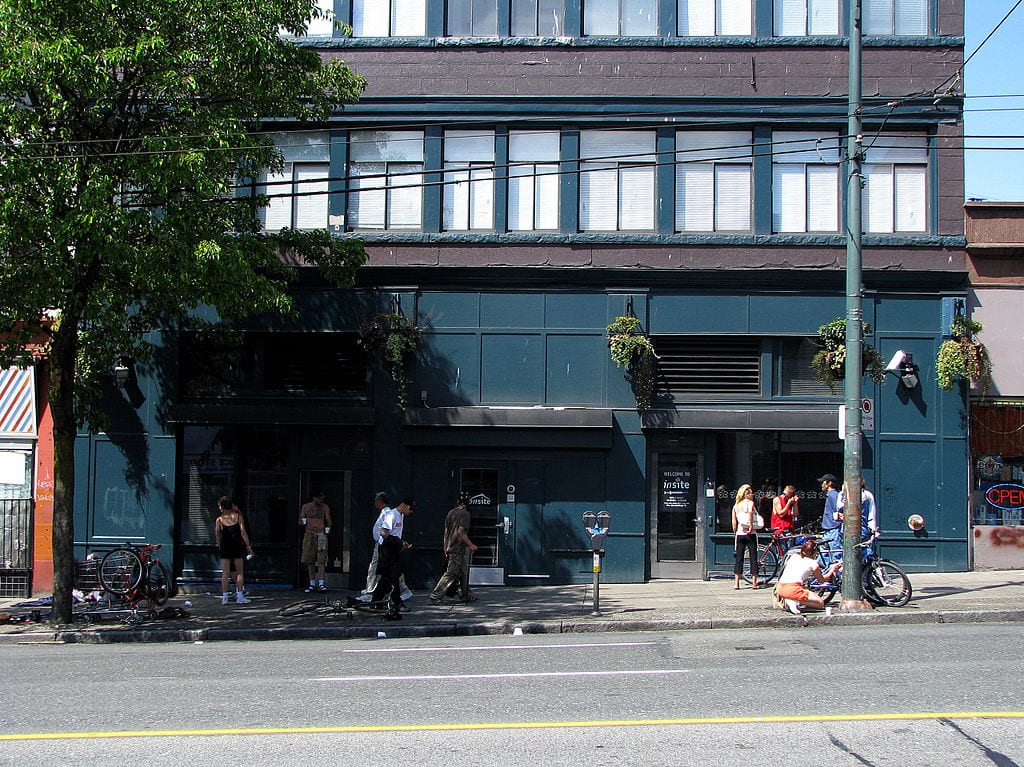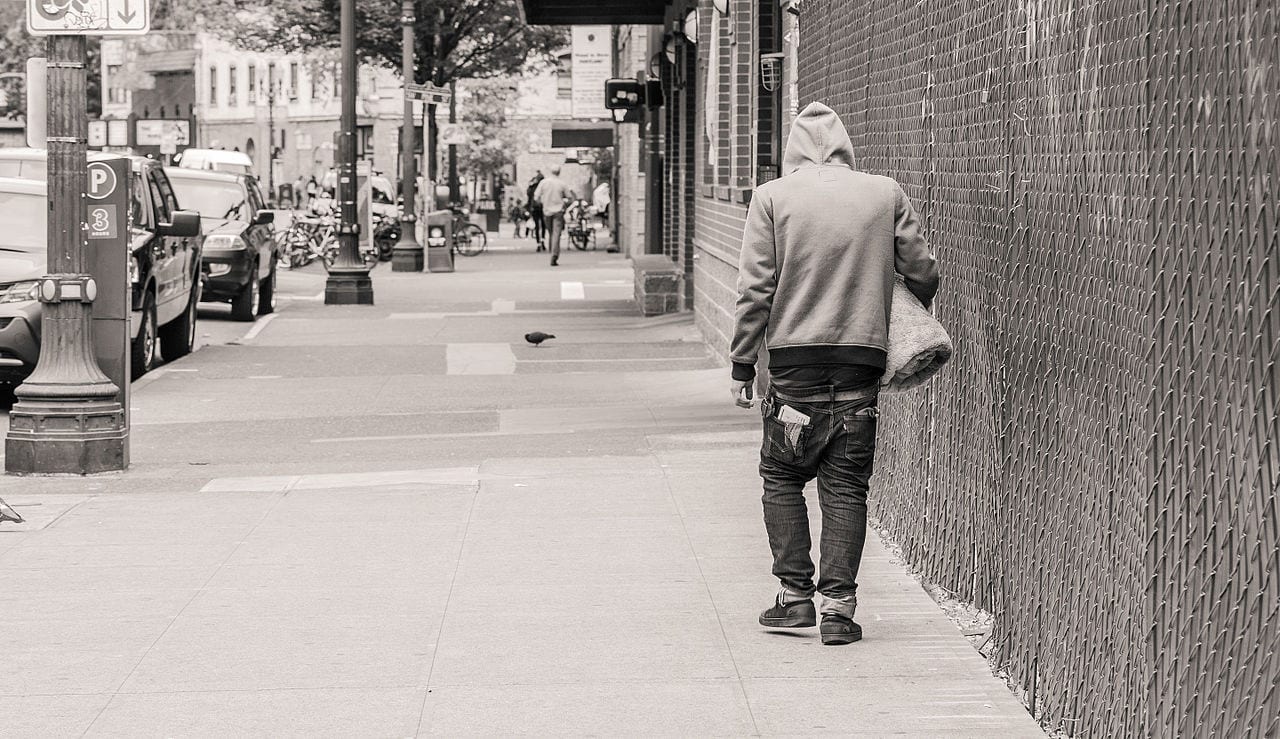Amid a flood of drug policy liberalization for cannabis and psychedelics in several U.S. states and cities, Oregon made the unprecedented move to decriminalize harder drugs like cocaine, heroin, LSD, oxycodone and methamphetamine.
Petitioners for the ballot measure say the huge victory will vastly curb racialized drug arrests, and revitalize pushes for harm-reduction measures like safe injection sites.
Similar legislation was called for north of the border by British Columbia’s health officer last year, to help combat a worsening opioid epidemic and reduce barriers for drug users. Instead of enacting provincial reform, Premier John Horgan asked the federal government to decriminalize drug possession this July, a move some criticized as passing the buck.
On election day, state voters approved Measure 110, which classifies possession of small amounts of street drugs as a civil violation, incurring a maximum fine of $100 and no possible jail time. Someone can avoid the fine entirely by participating in a health assessment, potentially connecting them with treatment services.
Read more: How Ann Arbor activists decriminalized psychedelics in a swing state
The penalty for possessing large amounts of these drugs will be reduced from a felony to a misdemeanor, while the consequence for selling and manufacturing them remains the same.
The measure also reallocates cannabis tax revenue that previously went to other programs like schools to a new addiction treatment fund. The state will put at least $57 million dollars a year into the fund, some of which will be used to establish addiction recovery centres throughout the state.
They struggled to get enough signatures for the measure to make the ballot due to anti-drug stigma and Covid-related campaigning restrictions, says Anthony Johnson, chief petitioner for the Vote Yes on 110 campaign. But in the end, the victory was huge.
“An initiative that would end thousands of drug possession arrests and convictions, disproportionately affecting people of color, while funding more treatment and recovery programs, was really a dream come true,” he says.
Johnson expects the measure and the new fund to spark momentum for harm-reduction efforts and potentially reignite past efforts that failed to take off, like the push for safe injection sites in Portland.
Oregon, first state to decriminalize cannabis, leads by example again
Oregon became the first state to decriminalize weed in 1973, and just as other states followed its example, Johnson expects the rest of the country will be inspired by the new legislation.
Read more: Canadian cannabis laws kick Vancouver harm-reduction project to the curb
“I think what we will see is a real cascade of efforts very similar to our first marijuana reform victories,” agrees Matt Sutton, director of media relations for the Drug Policy Alliance, which wrote the measure and spent over US$4 million on the campaign.
Johnson believes another long-term, less direct effect of the legislation will be to reduce anti-drug stima, encouraging people with substance use issues who need help to come forward.
Not everyone is in favour of the change. There was also a campaign against Measure 110, which claimed it would take US$90 million away from schools over the next three years and remove “the only path for parents to get their kids into treatment if they’re under 18.”
Johnson disagrees with these statements, pointing out that the Oregon Legislature has already preserved $9 billion for the K-12 State School Fund, preventing cuts to school funding.

Petitioners say Measure 110 will expand services for drug users and revitalize pushes for safe-injection sites, like Vancouver, B.C.’s Insite. Public domain image
“Even if Measure 110 ends up actually reallocating excess cannabis tax revenue away from the school budget, the amount of revenue equals about a half of one precent of the overall school budget,” he says. “Educators, parents, and students will benefit from funding more treatment and recovery services.”
“Measure 110 will provide more pathways to treatment by expanding services,” he adds in response to the second claim. “Currently, too many minors are getting ensnared in the criminal justice system and suffering harmful collateral consequences that come from minor drug convictions, such as the loss of financial aid and employment opportunities.”
For Sutton, the move is not just about helping those who suffer from substance use issues and preventing unnecessary arrests but also about racial justice. The Oregon Criminal Justice Commission has found that the measure would reduce racial disparities in drug arrests by 95 percent, he says.
The recent killings of Breonna Taylor, whose apartment was raided by police with a no-knock warrant as part of an ongoing drug trafficking investigation into her ex-boyfriend, and George Floyd — during which one officer yelled, “Don’t do drugs, kids!” — exemplify how racialized the drug war has become, Sutton points out.
“When Nixon declared the war on drugs, it was never about the drugs. That escalated with the Reagan administration — that’s really when things took off and we saw mass incarceration, we saw racial disparities increase, we saw entire communities of black and brown people devastated, entire generations of people taken from their homes. It’s continued to hold those communities down,” he explains.
“When drug possession remains the most arrested offence in the U.S., being able to remove a criminal offence from these interactions with law enforcement really goes a long way to reforming a broken system.”
Top image: Like in other jurisdictions, Oregon’s homeless population is at high risk of overdosing on opioids. Photo by Tony Webster via Wikimedia Commons
suzannahlweiss@gmail.com
@suzannahweiss














